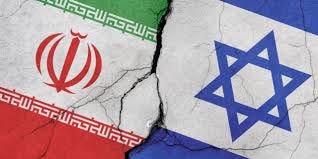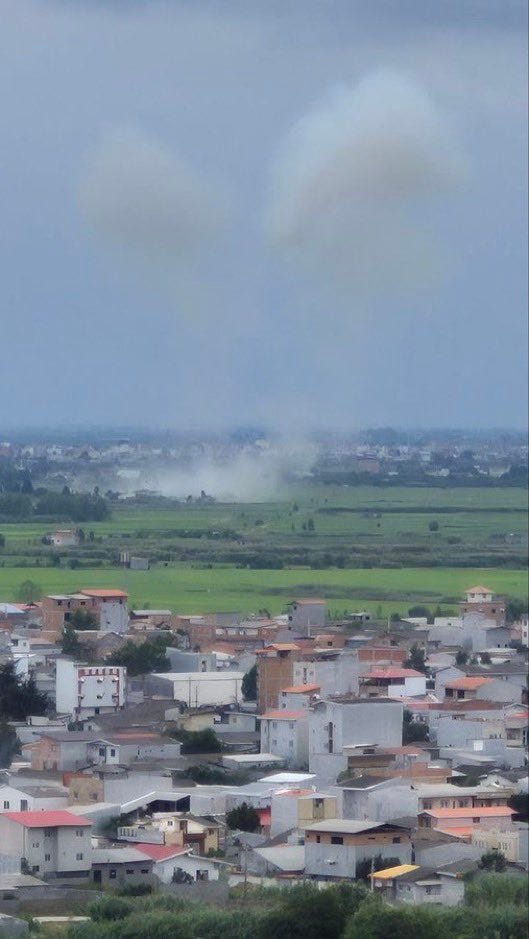President Donald J. Trump posted an urgent message on Truth Social just moments ago, writing: "Israel. Do not drop those bombs. If you do it is a major violation. Bring your pilots home, now. Donald J. Trump, President of the United States."
The warning comes amid rapidly escalating tensions between Israel and Iran, as the fragile ceasefire that had briefly taken hold appears to be unraveling. In response to what it calls a severe breach of the ceasefire by Iran, Israeli leadership has vowed immediate and forceful retaliation. Lieutenant General Eyal Zamir, Chief of the General Staff, declared: "In light of the severe violation of the ceasefire carried out by the Iranian regime, we will respond with force."
Israeli Defense Minister Israel Katz added: "I instructed the IDF, in coordination with the Prime Minister, to respond forcefully to Iran’s violation of the ceasefire with intense strikes against regime targets in the heart of Tehran. The Iranian regime severely violated the ceasefire declared by President Trump and launched missiles toward Israel. In accordance with government policy, we will respond forcefully to any violation."
At the same time, Iran is presenting a vastly different narrative. Iranian officials and state-affiliated media, along with regional allied channels, are declaring what they call a “legal, political, nuclear, and military victory” over both Israel and the United States. Tehran remains calm on the surface, portraying its posture as one of strategic success and restrained strength.
Iran’s Victory Messaging:
1) Military Capability and Response
Iranian officials highlight the recent strike on Al Udeid Air Base in Qatar as proof of their ability to strike deep into regional "enemy" territory. They deny Israeli claims that Iranian missile infrastructure was crippled, asserting full operational readiness.
2) Congratulatory Messaging from Allies and Proxies
Iran’s regional allies and proxies are publicly praising Tehran’s actions, calling them “the knockout punch” and “the final shot.” These slogans have become rallying points across Iran-aligned media.
3) Internal Unity and Civil Mobilization
Iranian authorities credit national unity and the alignment of the public with military and political leadership as key reasons behind what they claim is a strategic victory.
4) Legal and Diplomatic Framing
Tehran accuses the United States of violating the Nuclear Non Proliferation Treaty through its strikes on nuclear facilities, asserting that international law and global opinion now favor Iran.
5) Global Support and Political Leverage
Iranian officials claim growing international solidarity, particularly from the Arab and Islamic world, as well as sympathy from Latin America, parts of Europe, and global humanitarian circles. This is being framed as a decisive diplomatic gain.
6) Resilient Nuclear Program
Despite acknowledged damage at sites like Natanz, Fordow, and Isfahan, Iranian officials maintain that their nuclear program remains functional and intact, and work is already underway to restore affected infrastructure.
Israel’s Victory Narrative :
Similarly, Israel is likely to claim victory for launching preemptive strikes that targeted and eliminated dozens of Iranian Islamic Revolutionary Guard Corps (IRGC) generals, security commanders, and nuclear scientists. These operations reportedly played a role in convincing the Trump administration to authorize the use of B-2 strategic bombers and, for the first time, deploy the GBU-57 Massive Ordnance Penetrator (MOP) to strike the Fordow nuclear enrichment facility.
Israel also claims to have destroyed a quarter of Iran’s TEL mobile missile launchers, disrupted air defense systems from day one, and established air superiority that allowed UAV operations deep into Iranian territory. Their defense systems reportedly intercepted dozens of incoming missiles, showcasing their preparedness.
Additionally, Israel highlighted its intelligence operations inside Iran, including the covert manufacture and deployment of drones from within Iranian territory, signaling deep infiltration capabilities.
Israel has also pointed to limited but notable diplomatic support from countries such as France and Germany. Strategically, they claim to have weakened the Iranian regime by targeting international security installations, particularly in the Basij bases, and believe their actions will encourage future internal dissent and uprisings against the Ayatollah's leadership.
While President Trump’s direct intervention aims to prevent a major military escalation, Israel’s leadership insists that a forceful response to Iranian aggression is imminent. As both sides double down on their positions, the hours ahead will be crucial in determining whether diplomacy prevails or the region slips back into open conflict.
Post Publication Update at 8:00 ET, 24 June 2025:
After President Trump declared, "Israel is not going to attack Iran. All planes will turn around and head home while doing a friendly plane wave to Iran. Nobody will be hurt. The ceasefire is in effect," the situation on the ground quickly changed.
Within minutes, Israeli fighter jets were seen flying over Tehran, breaking the sound barrier and launching at least two confirmed strikes in the city. This brings the total to three strikes in just a few minutes, signaling a clear escalation despite the presidential warning.
Israel has now openly defied President Trump’s plea and violated the ceasefire by also striking Babolsar, a city in Mazandaran Province near the Caspian Sea, northeast of Tehran. This came after Iran had earlier breached the truce as well, with both sides appearing determined to deliver a final blow in an effort to claim victory. Although Babolsar is not widely recognized for housing major military installations, its location near Iran’s northern naval bases, radar systems, air defenses, and aerospace research centers gives the strike potential strategic significance.





